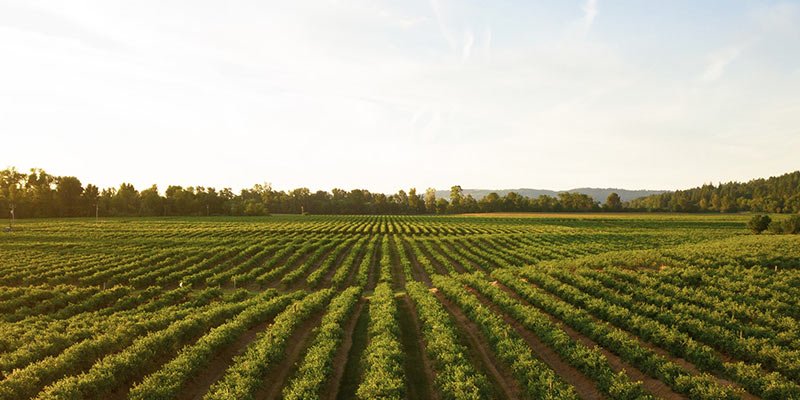In today’s world, where sustainability and health are becoming increasingly important, natural crops on farms are gaining significant attention. These crops, grown without synthetic pesticides or fertilizers, offer numerous benefits for the environment, human health, and the economy. This blog post explores the importance of natural crops, highlighting their advantages and providing insights into how they contribute to a sustainable future.

- Environmental Benefits of Natural Crops
Natural crops play a crucial role in preserving the environment. By avoiding synthetic chemicals, farmers reduce the pollution of soil and water sources. This leads to healthier ecosystems and promotes biodiversity. Moreover, natural farming practices such as crop rotation and organic composting enhance soil fertility, reducing erosion and improving water retention. These methods not only sustain the land for future generations but also create a balanced and resilient ecosystem.
- Health Advantages for Consumers
Choosing natural crops has direct benefits for consumers’ health. Foods grown naturally are free from harmful pesticides and genetically modified organisms (GMOs). This means that when you consume natural produce, you are less likely to ingest potentially harmful chemicals. Studies have shown that natural crops often contain higher levels of essential nutrients, including vitamins, minerals, and antioxidants. These nutrients are vital for maintaining good health and preventing chronic diseases, making natural crops a healthier choice for you and your family.
- Economic Benefits for Farmers
Natural farming practices can be economically advantageous for farmers. While the initial transition to natural methods might require an investment, the long-term benefits are significant. Farmers can save money on expensive synthetic fertilizers and pesticides, and often receive higher prices for their natural produce in the market. Additionally, natural crops are in high demand among consumers who are willing to pay a premium for healthier and environmentally friendly options. This increased demand can lead to better financial stability and sustainability for farming communities.
- Supporting Local Communities
Natural farming practices often encourage local community involvement and support. Small-scale farmers practicing natural agriculture tend to sell their produce at local markets, promoting a farm-to-table approach. This not only provides fresh, seasonal produce to the community but also strengthens the local economy. By supporting natural crops, consumers are investing in their local farmers, fostering a sense of community and sustainability. Moreover, local natural farms can offer educational opportunities, teaching others about sustainable agriculture and healthy eating habits.
- Contributing to Climate Change Mitigation
Natural crops can play a significant role in mitigating climate change. Conventional farming practices often contribute to greenhouse gas emissions through the use of synthetic fertilizers and pesticides. In contrast, natural farming methods promote carbon sequestration in soil and reduce emissions. Practices such as cover cropping, reduced tillage, and organic composting help capture carbon dioxide from the atmosphere and store it in the soil. By choosing natural crops, we can support agricultural practices that actively contribute to reducing the impacts of climate change.
Conclusion
The shift towards natural crops on farms is more than a trend; it is a vital movement towards sustainability and health. From environmental preservation to consumer health benefits and economic advantages for farmers, natural crops offer a holistic approach to farming. By supporting and choosing natural crops, we are investing in a sustainable future that benefits the environment, our health, and our communities. Embrace the change, support natural farming, and contribute to a greener, healthier world.
